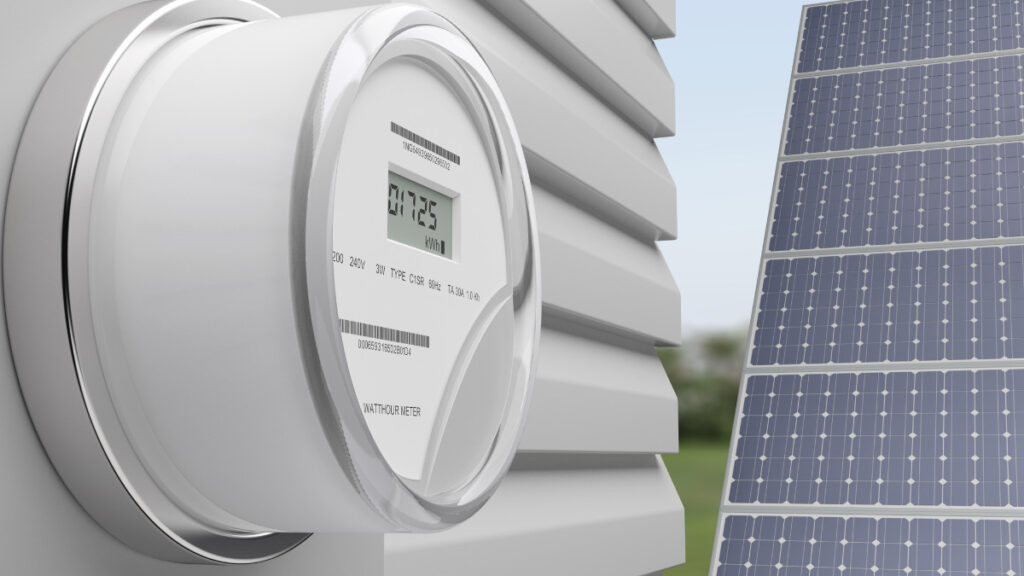Introduction
Welcome to the sunny state of Florida, where harnessing solar power has never been more advantageous or accessible. With various federal and state incentives available, now is the perfect time for Floridians to invest in clean, renewable energy through solar panels.
In this blog post, we will explore the various incentives – such as tax credits, rebates, and financing programs – that make it even more appealing for homeowners and businesses to choose solar energy.
Understanding Solar Incentives In Florida
To take advantage of the many solar incentives available in Florida, homeowners and businesses need to understand the key programs, including federal tax credits and local utility rebates.
Federal Solar Tax Credit
Taxpayers can claim the federal residential solar energy credit on their federal income taxes for a percentage of the cost of a solar PV system. The taxpayer must pay for the system, and they must complete the installation during the tax year. Similar credits are available for other types of renewable energy, but this guidance does not cover them.

If taxpayers install a solar PV system in 2020 or 2021, they are eligible for a 26% tax credit. The ITC was extended by Congress in August 2022, which raised the tax credit to 30% for installations between 2022 and 2032. Systems installed on or before December 31, 2019, were also eligible for a 30% tax credit. The tax credit will decrease to 26% for systems installed in 2033 and 22% for systems installed in 2034. The tax credit will expire starting in 2035 unless Congress renews it.
Florida Net Metering Program
The Florida Net Metering Program is a program that allows homeowners with rooftop solar panels to receive credits for the excess energy they generate and send back into the grid.

This means that when their solar panels generate more electricity than they need, homeowners can effectively sell this excess power back to their utility company in exchange for credit towards their electricity bill.
The net metering program helps offset some of the investment costs of installing solar panels while encouraging clean energy production. For example, if a homeowner generates 1,000 kWh monthly but only uses 800 kWh during that time, they would be credited for the extra 200 kWh produced.
These credits can then be applied towards future bills where there may not be enough sunlight to fully meet their energy needs.
These incentives make it easier and more affordable for Floridians to invest in renewable energy sources like rooftop solar panels while decreasing dependence on traditional fossil fuels and reducing carbon footprints over time.
Local Utility Rebates
Another great way to save money on solar panel installation in Florida is through local utility rebates. Some utility companies, such as Duke Energy and FPL, offer rebate programs that help homeowners cover a portion of the cost of their solar panel system.
These rebates can range from a few hundred to thousands of dollars depending on the size and type of system installed. For example, Duke Energy offers residential customers in Florida a $0.25 per watt rebate for ground-mounted systems and a $0.50 per watt rebate for rooftop systems up to 10 kW in size.
Florida Solar System Property Tax Exemption
Florida provides a 100% property tax exemption for residential solar panels, one of the state’s most significant incentives available to solar panel owners.
This means homeowners who install solar panels will not be required to pay additional property taxes. Florida’s property tax exemption applies only to residential properties, not commercial ones.
Additionally, non-residential renewable energy facilities can qualify for an 80% property tax abatement in Florida.
Florida Solar Pace Financing
Florida Solar Pace Financing is a program that allows homeowners to finance their solar energy systems with no upfront costs. PACE (Property Assessed Clean Energy) financing provides loans for renewable energy projects, which are paid back through property taxes over 10 to 20 years.
Florida’s PACE program offers flexible terms and competitive interest rates, making it easier for homeowners to go solar without breaking the bank.
Moreover, unlike traditional bank loans, PACE financing is attached as a lien on the property rather than an individual’s credit history. This means that if the homeowner chooses to move homes before paying off the loan balance – they won’t be responsible for repaying any outstanding amount from the pocket; instead, it would transfer over to whoever purchases the home next.
Qualifying For Florida Solar Incentives
To qualify for Florida solar incentives, homeowners must choose the right solar system, find a qualified installer, meet eligibility requirements, provide the required documentation, and complete the application process.
Choosing The Right Solar System
When it comes to investing in solar panels, it’s crucial to choose the right system for your home or business. Here are some tips for selecting the best solar system:
- Determine your energy needs:
- Consider your current energy usage and future needs. This will help you determine the appropriate size of your solar panel system.
- Research different types of solar systems:
- Several types of solar panels are available, including monocrystalline, polycrystalline, thin-film, and bifacial panels. Each type has its own advantages and disadvantages.
- Look for certifications:
- Ensure the solar panel system you choose is certified by reliable institutions such as the International Electrotechnical Commission (IEC) and Underwriters Laboratories (UL).
- Check warranties:
- Look for a system with a warranty covering equipment and installation.
- Consider brand reputation:
- Choose a reputable brand known for producing high-quality and long-lasting solar systems.
- Consult with professionals:
- Seek advice from qualified professionals such as licensed contractors or experienced solar installers.
By choosing the right solar panel system, you can maximize the benefits of Florida’s various incentives and rebates while reducing energy costs and carbon footprint.
Eligibility Requirements
To qualify for solar incentives in Florida, homeowners must meet certain requirements. First and foremost, choosing the right solar system is crucial. The size of the home, energy consumption habits, and budget are major factors in selecting an appropriate solar panel system.
Secondly, finding a qualified solar installer can significantly increase the chances of eligibility.
Thirdly, homeowners must have access to unobstructed sunlight for most of the day throughout the year without any shading from nearby trees or buildings, as this will affect how efficiently their panels generate electricity.
Lastly, required documentation, such as proof of ownership and permits, may vary depending on location regulations.
Required Documentation
To qualify for solar incentives in Florida, homeowners need to provide the following documentation:

- Proof of Property Ownership
- Includes a deed or mortgage statement and property tax bill.
- Electric Bills
- Homeowners must provide copies of their electric bills from the past 12 months.
- Solar Panel System Proposal
- Homeowners must provide a detailed solar system proposal to apply for solar incentives, including size, output, and estimated costs.
- Contractor License and Insurance
- The installer must have a valid Florida contractor’s license and carry general liability insurance.
- Building Permit
- Homeowners must obtain a building permit from their local government before installing the solar panel system.
- Federal Tax Form 5695
- To claim the federal solar investment tax credit, homeowners must fill out Form 5695 with their annual tax return.
- State Rebate Application
- Homeowners who want rebates should check with their local utility company or municipal government. These entities may offer rebates for certain home upgrades or improvements. To receive these rebates, homeowners may need to complete an application form. Additionally, they may need proof of income and residency to qualify. The specific requirements for receiving rebates will vary depending on the local entity offering them.
Providing all necessary documentation is crucial for successfully applying for solar incentives in Florida. It is important to work with qualified professionals who can guide homeowners through the process and ensure they meet all eligibility requirements outlined by state and local programs.
Application Process
To qualify for Florida solar incentives, homeowners must go through an application process that includes the following steps:
- Choosing the Right Solar System:
- Homeowners should research different solar systems and choose the one that meets their energy needs. They should consider factors such as cost, efficiency, and warranties.
- Finding a Qualified Solar Installer:
- Hiring a qualified and licensed installer who can properly install and maintain the solar system is important. Homeowners can find certified installers through websites like NABCEP or SEIA.
- Eligibility Requirements:
- Homeowners must meet certain eligibility requirements to qualify for Florida solar incentives.
- Required Documentation:
- Homeowners must provide proof of property ownership, electricity usage history, and income taxes.
- Application Process:
- The application process varies depending on the specific incentive or rebate. The most important idea is to submit the required documents and schedule an assessment with a certified installer.
By following these steps and thoroughly researching available incentives and rebates, homeowners in Florida can take advantage of various solar programs to save money on energy costs while helping the environment.
Benefits Of Investing In Solar Panels In Florida With Incentives
Investing in solar panels in Florida with incentives offers benefits, including reduced energy bills, increased property value, energy independence, and reduced dependence on fossil fuels.
Reduced Energy Bills
One of the significant benefits of investing in solar panels in Florida with incentives is reduced energy bills. By harnessing the power of solar energy, homeowners can generate their electricity and become less reliant on traditional utility companies.
With net metering programs in Florida, excess energy generated by your solar panels can be sold back to the grid for credits on your electric bill. Additionally, qualified homeowners may be eligible for local utility rebates or federal tax credits that further reduce the cost of installing a solar system.
Reduced Carbon Footprint
Investing in solar panels in Florida can significantly reduce your carbon footprint. Generating electricity from fossil fuels significantly contributes to greenhouse gas emissions, which harm the environment and contribute to climate change.

According to the National Renewable Energy Laboratory, a typical residential solar panel system can offset more than 3 tons of carbon dioxide annually – equivalent to planting over 100 trees annually.
Moreover, as more people invest in solar energy systems across Florida, this creates a shift towards cleaner and sustainable energy sources for the state’s residents.
Increased Property Value
Investing in solar panels can significantly increase the property value of a home. Studies have shown that homes with solar panels sell for an average of $15,000 more than homes without, making it a smart investment for homeowners looking to increase their resale value.
Not only do solar panels offer significant energy savings, but they also contribute to the overall sustainability and efficiency of a home. Homebuyers are increasingly interested in environmentally friendly features, and an installed solar panel system makes your property more attractive and valuable.
Energy Independence
Investing in solar panels creates a sustainable future and provides energy independence. By generating your electricity, you reduce reliance on fossil fuels and the utility companies that supply them.
With net metering policies in Florida, excess energy generated by the solar system can be sold back to the grid or stored for later use. This means homeowners can decrease their carbon footprint while gaining control over their energy bills.
Furthermore, with battery storage technology advancements, homeowners can store the excess energy generated from their solar panels to ensure uninterrupted power during outages or high demand.
Reduced Dependence On Fossil Fuels
Investing in Florida’s solar panels with incentives leads to reduced energy bills and reduces dependence on fossil fuels. By switching to clean and renewable energy sources, homeowners can significantly lower their carbon footprint while contributing towards a sustainable future.

Fossil fuel consumption is one of the leading causes of greenhouse gas emissions, which exacerbate climate change and harm our planet’s ecological balance. By investing in solar panels, Floridians can take an important step towards reducing their reliance on nonrenewable energy sources and contribute to a greener future for future generations.
Moreover, solar power systems use no water during operations or production compared to traditional forms of electricity generation that need millions of gallons daily for cooling purposes.
Making The Most Out Of Florida’s Solar Incentives
To maximize the benefits of Florida’s solar incentives, it is essential to understand the various programs available and seek professional help to choose the right solar system, find a qualified installer, and gather all necessary documentation for eligibility requirements.
Understanding The Different Incentives
To make the most out of Florida’s solar incentives, it is essential to understand each one thoroughly. The federal solar tax credit allows homeowners to deduct 30% of their solar power system costs from their taxes.
The net metering program helps customers earn credits on their utility bills for excess energy generated by their solar panels. Local utility companies also offer rebates that vary according to location and provider.
Additionally, a property tax exemption provides a 100% reduction in property taxes on residential solar panel installations. It’s crucial to research and fully understand each incentive available before investing in a solar panel system.
Seeking Professional Help
When it comes to installing solar panels, seeking professional help is crucial. Choosing the right solar panel system and installer requires careful consideration of costs, efficiency, and warranty.
In addition, navigating the various incentive programs can be overwhelming without expert guidance. A qualified solar contractor can thoroughly evaluate your property’s energy needs and advise on which incentives are available.
They can also assist with the application process for utility rebates, federal tax credits, and other local incentives.
Leveraging Multiple Incentives
Homeowners investing in solar panels should leverage Florida’s various incentives by leveraging multiple options. For instance, combining the federal solar tax credit with local utility rebates can significantly reduce the cost of installation.
Additionally, eligible homeowners can leverage Florida’s net metering policies to sell excess energy back to their utility company and earn credits on their bills.
Homeowners need to research and understand all available incentives before making a decision. Seeking professional help from qualified solar installers can also provide valuable guidance on which incentives best fit specific needs and budgets.
Planning For The Future
To make the most out of solar incentives in Florida and ensure long-term benefits, it’s important to plan for the future. Start by researching local solar providers to find one with a proven track record and good reviews.
Assess your energy needs and choose a scalable solar system so that you can easily expand it as needed in the future.
Investing in high-quality equipment from reputable manufacturers that offer warranties on their products is also essential. Regular maintenance of your solar panels will extend their lifespan and ensure optimal performance while helping you save money on costly repairs.
Conclusion
In conclusion, investing in solar panels in Florida can be a smart move for homeowners looking to save money on their energy bills while reducing their carbon footprint. With various federal, local, and utility incentives available, it’s important to understand the eligibility requirements and application processes to maximize these opportunities.
Homeowners can reap numerous benefits by choosing the right solar system and finding a qualified installer, such as increased property value and energy independence.
What Can DroneQuote Do
Ready to save money and reduce your carbon footprint with solar power? Let DroneQuote help you harness the sun’s energy with our top-quality solar panels and roofing services. With our expertise and the numerous incentives available, there has never been a better time to switch to clean, renewable energy. Sign up today to learn more and get started on your solar journey!
FAQs:

- What kind of solar incentives are available in Florida?
Florida offers a range of solar incentives, including tax exemptions, rebates, and net metering programs that allow homeowners to sell excess energy back to the grid at wholesale prices.
- Who is eligible for these solar incentives in Florida?
Eligibility for solar incentives varies depending on factors such as income level, system size, and location. Most programs are open to residential and commercial property owners meeting certain criteria.
- How can I apply for these solar incentives in Florida?
To apply for solar incentives in Florida, you need to research the available programs and determine which ones you qualify for based on your situation. You must then submit an application with any required documentation before the deadline.
- How much money can I save through these solar incentive programs in Florida?
The amount of money you can save through Florida’s various solar incentive programs depends on several factors, including the size and efficiency of your system and how much energy you use each month. However, many homeowners report saving thousands of dollars annually by installing a solar panel system with access to these state-sponsored benefits.
